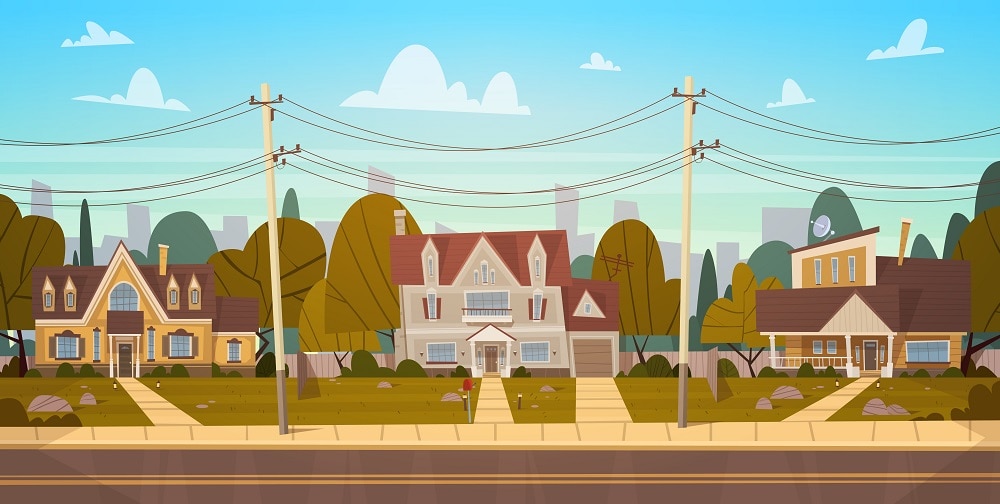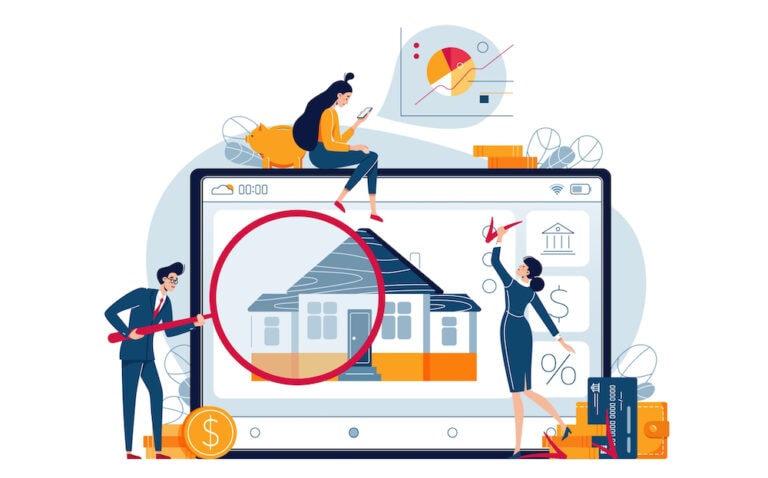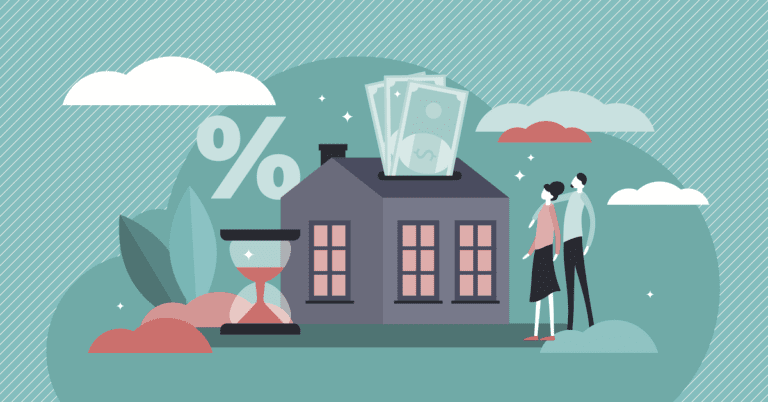When it comes to real estate and property; location matters as much as, if not more than, the actual details of the house. Factors outside of your control that affect a home’s value are known as “external obsolescence.”
If you want to sell your home for its maximum value, having a great agent in your corner helps. They’ll be able to spot these external factors and see which ones matter the most and adjust your price accordingly.
If you’re looking for a great agent, we recommend our partners at Clever Real Estate. Clever offers a free agent-matching service that can pair you with up to three pre-vetted local agents who can help sell your house for just a 1.5% fee. You’ll save thousands in commission costs and your agent will be experienced, qualified, and ready to sell your house for maximum value.
👋 Connect with a Clever agent and find out how much you can save!
1. Curb Appeal
Although you might make every effort to make the outside of your home appealing — mowing the lawn or putting some flowers by the front door — if your neighbors aren’t doing the same, it can be a red flag to buyers.
Neighboring homes that look neglected or that have a lot of junk on the front lawn or in the driveway can drive down the value of yours, as they send the message that people don’t care about the neighborhood.
2 .The Price of Nearby Homes
The price of homes near yours that have recently sold can affect how much people are willing to offer for yours. For example, if you have a four-bedroom, three-bath home, and you list it for $300,000, but similar homes have recently sold for $200,000, potential buyers are going to wonder why yours is so much more expensive.
Unless your house has something that really makes your home worth $100,000 more, it can be difficult to get a buyer when homes around you sell for much less.
3. Neighborhood Schools
Even if buyers don’t have children, the quality of nearby schools impacts the price of homes. If your home is in an area known for great schools, demand is likely to be higher, and you can expect a better price for your home.
But, if you live near struggling or failing schools, your home’s value is likely to drop.
4. Area Businesses and Amenities
Convenience is a major factor when people are looking to buy. If your home is in a neighborhood with lots of amenities, such as a park, community pool and nearby supermarket, it will be more appealing, and worth more, to buyers, compared to a house that’s in a more remote or less-settled area.
5. Employment Opportunities
Similarly, a home in a neighborhood or area with lots of job opportunities will be more valuable than a home in an area with a high unemployment rate. Homes in areas with lots of business opportunity, which are near major research centers or universities, offer more job options and opportunities for growth to potential buyers.
6. Crime Rate
A research study from the University of Chicago found that a decrease in crime rate in an area led to an increase in property value. If your home is in a neighborhood that sees a high incidence of crime, it can be a challenge to get a good price when you sell.
7. Nearby Foreclosures
Although you have no control over whether your neighbors pay their mortgages or not, having a number of foreclosed homes in the area around yours can bring down the value of your property.
One study by the Federal Reserve Bank of Cleveland found that foreclosures within 660 feet dragged property values down by 0.9%.
8. A High Number of Renters
Neighborhoods with a high number of renters can decrease your property value. Home buyers like to know who their neighbors are (or at least, know that they won’t become problems). People constantly moving in and out all around your home isn’t ideal.
9. Public Transportation Proximity
A neighborhood within a few minutes to a city-bound railroad can help your property value. In cities with a good transportation system, proximity to bus stops or subways can also help.
10. Nearby Developments
Buyers don’t want to suddenly be next to a big shopping complex. It’s one thing if the shopping is established, but it’s entirely different if buildings are under construction.
11. Big Plots of Land For Sale
Likewise, huge plots of land that are for sale can signal future developments. Buyers don’t like that, as it creates future uncertainty. If an investor buys the land and adds another 50 homes to local inventory, it can depress prices.
12. Floorplan and Layout
Bigger homes sell for more, but just having a lot of square feet isn’t going to guarantee a high home sale.
If your home has a poor floorplan with wasted space, buyers are going to think twice about how their stuff will look in your place. You can mask wasted space by having your home staged.
Ask your realtor if staging your home is a good idea. It can add an extra cost to your home sale, but if your layout isn’t appealing, it can help make your home look inviting.
While you can’t control many of these factors, it’s important to know how they affect your home value. A good realtor will be able to price your home accurately, but you will have to pay the standard 2.5-3% commission out of your home sale. That can be quite a dent, since you will also need to pay the same amount to the buyer’s agent.
We don’t think sellers should have to pay that much in listing fees, but we also believe that having a good realtor by your side will get your home sold for its maximum value. That’s why Home Bay has partnered with Clever Real Estate.
Clever is a nationwide brokerage that pre-negotiates low listing fees with high-performing agents and passes the savings on to you. Clever’s partner agents can sell your house for 1.5% or $3,000 for home sales below $350,000.
In the first few months of 2022, Clever helped 1,400 families buy and sell houses, saving them $12.5 million in fees. Find out why Clever has a 4.9 out of 5 rating on Trustpilot and speak with a Clever agent today! You can also check out their free online home estimator — just plug in your ZIP code below and see how much your home is worth!



